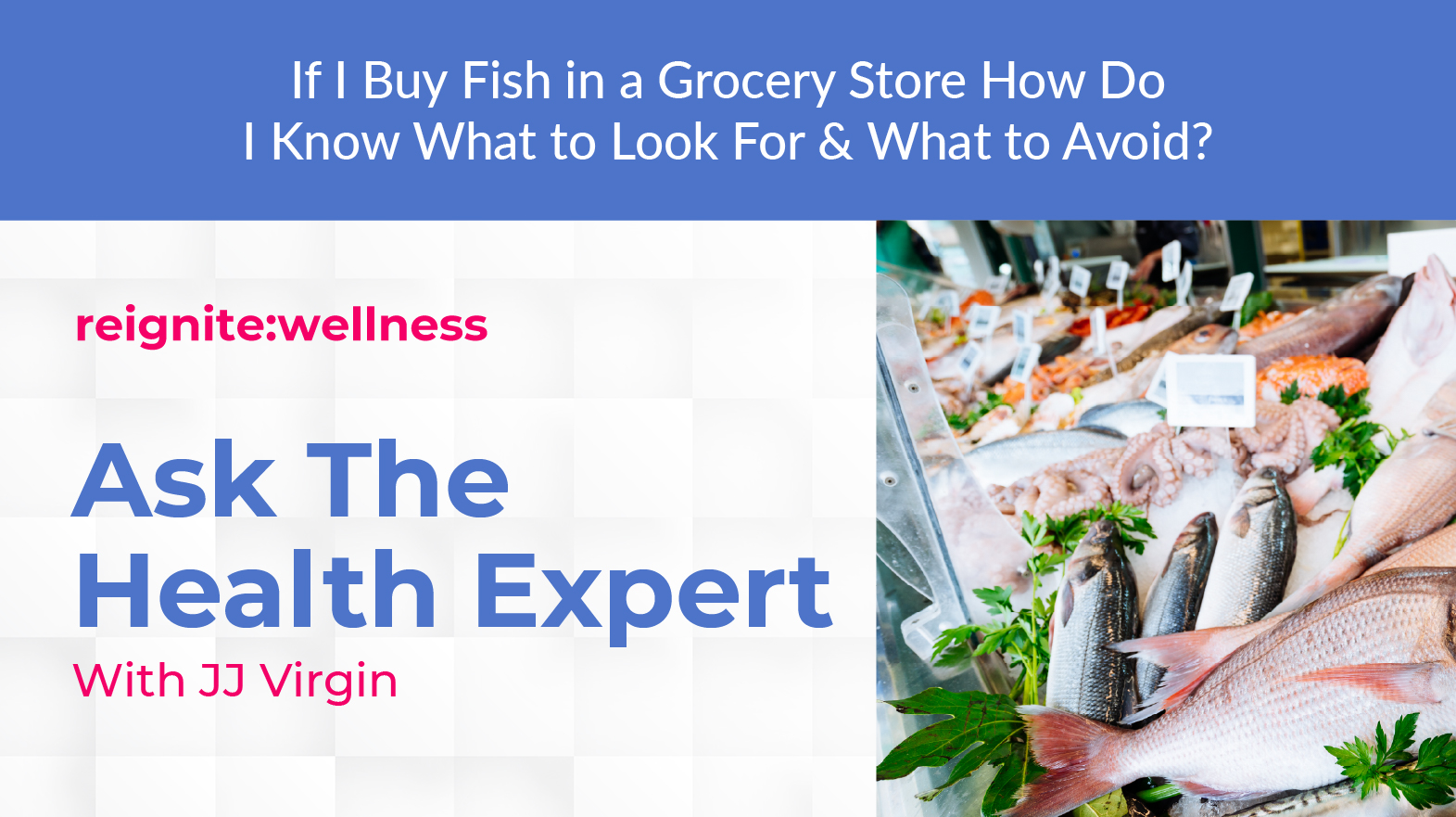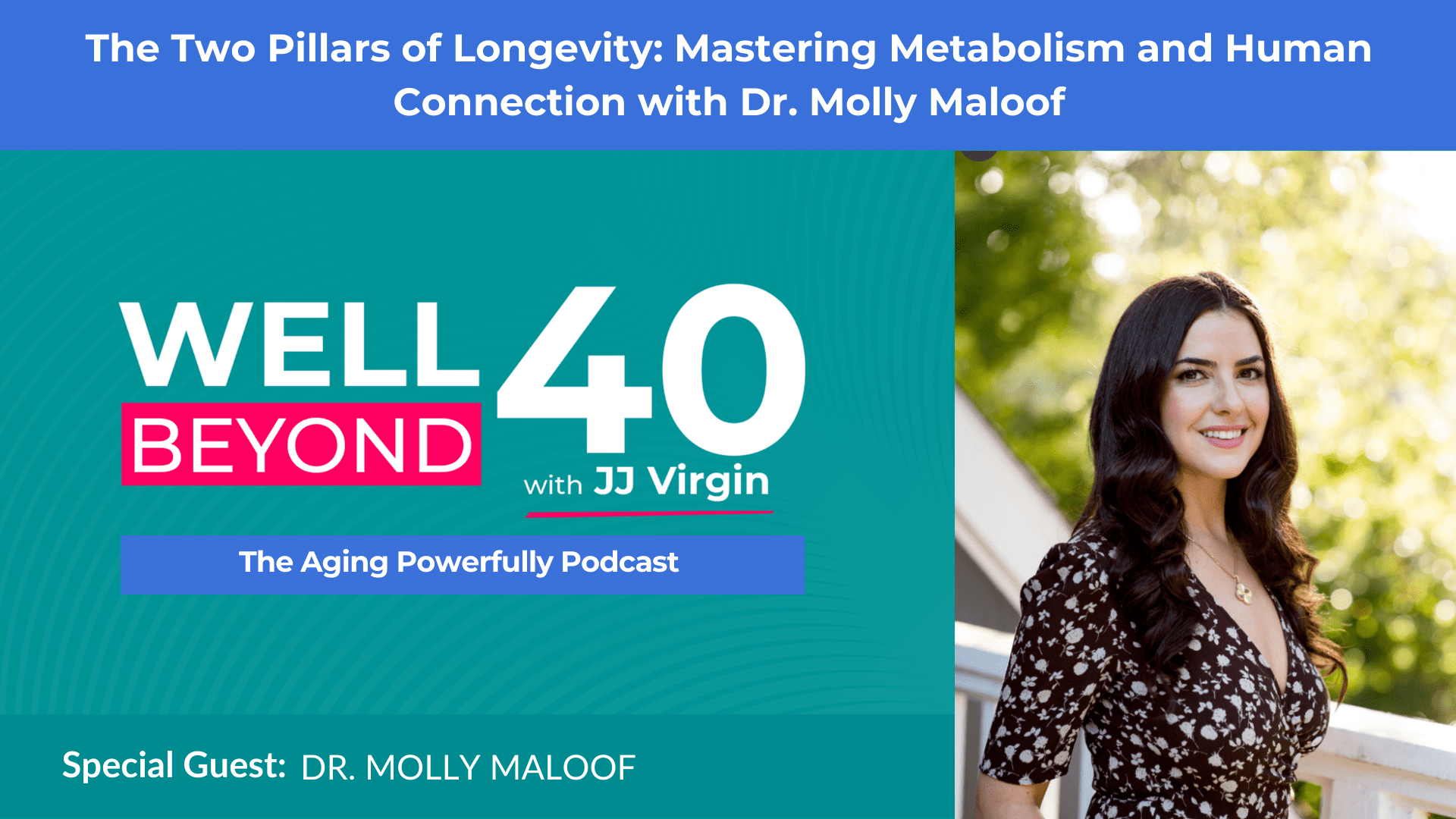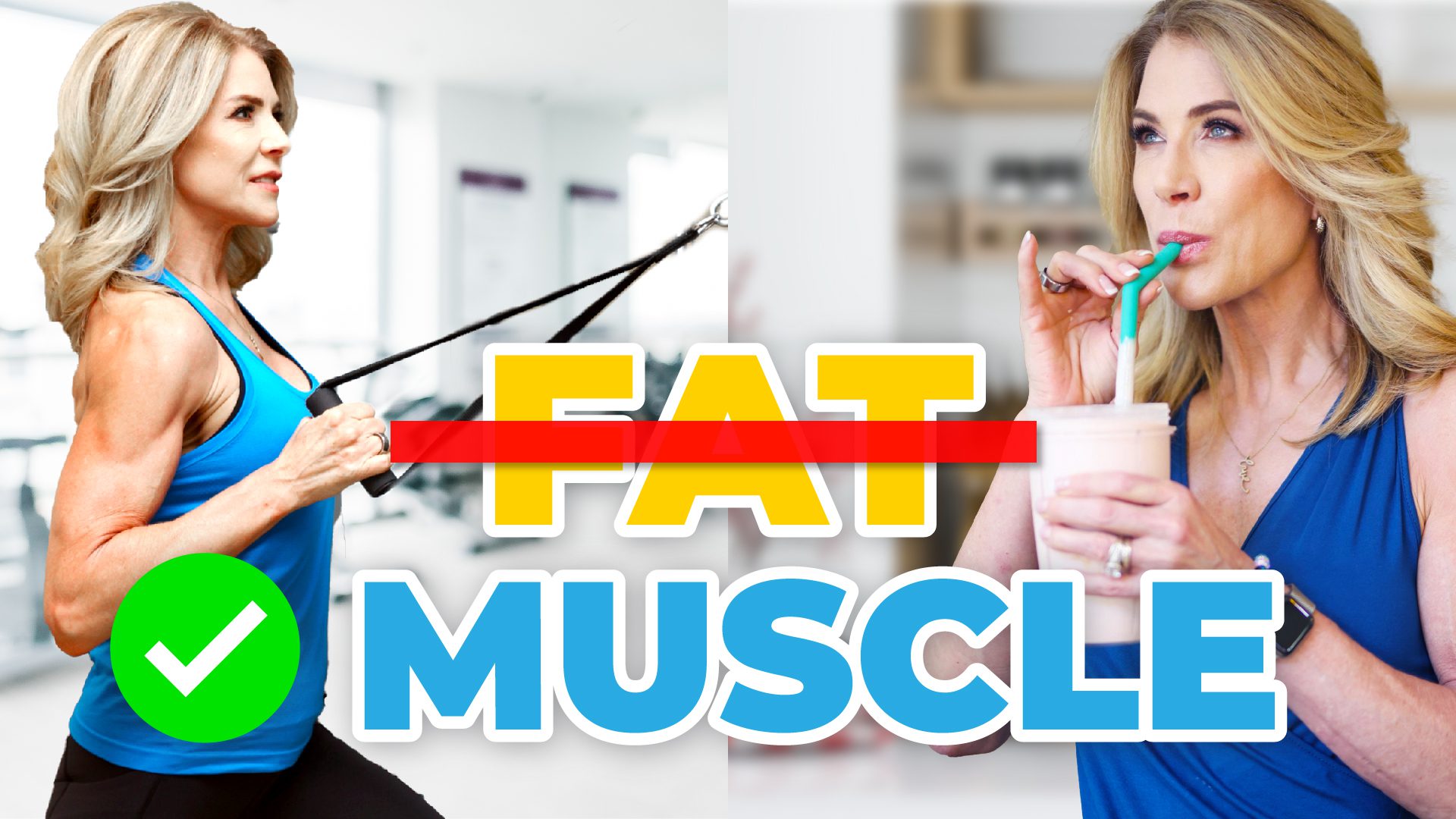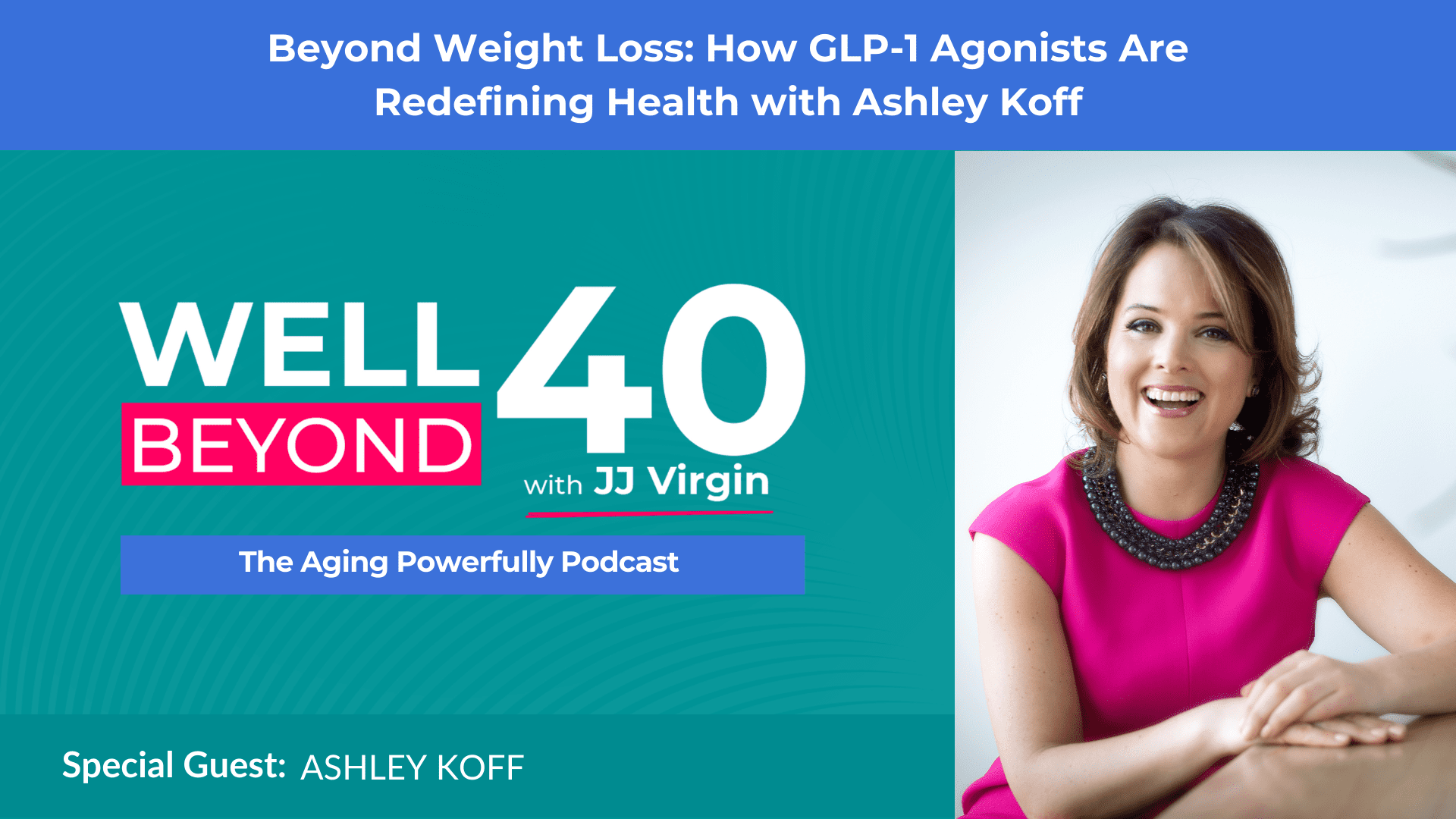Shopping Smart for Seafood
It can be confusing to know how to shop smart for the best and healthiest quality animal protein at the grocery store. When it comes to seafood, you have to know if you can trust the source to make sure you’re purchasing fish that’s raised and fed properly. In this episode, you’ll learn what to look for at the supermarket, which types of fish to prioritize and avoid, and the helpful foods to add to your diet to help counteract any heavy metals like mercury consumed in certain fish.
Mentioned in this episode:
ATHE_Transcript_Ep 504_If I Buy Fish in a Grocery Store How Do I Know What to Look For & What to Avoid?
JJ Virgin: [00:00:00] If I buy fish in a grocery store, how do I know what to look for and what to avoid?
This is JJ Virgin four time, New York Times best selling author, celebrity, nutrition expert, and fitness hall of famer. I've been on a lifelong quest for answers to the toughest health. And now I'm sharing what I found with you. Welcome to ask the health expert
Scott from Facebook asked If I buy fish in a grocery store, how do I know what to look for and what to avoid? All right, Scott, I love that you're eating fish and I will be right back with some fishy advice. Not really. Haha, I couldn't help myself.
Okay, fish, [00:01:00] fish, fish. I'll tell you what you know, here's, here's the real deal. I've been fortunate to be able to spend time with Randy Hartnell, who created Vital Choice, and he created Vital Choice because he was a salmon fisherman in Alaska, and when all the fish farming started, he was so upset and appalled because, you know, they were like, that was his whole world and he saw what was happening and so he decided he was going to create.
A company that would go get all the wild fish and had, you know, sustainable practices and did everything right. So the first thing that I would tell you is, if at all possible, you wanna buy from a place like Vital choice. Where, you know they're doing the right things and you know you can trust the source, right?
That you've got someone just like that. Here's the, the thing, some of these farm raised fish or seafood, and I remember hearing this from one of my expert friends. I think maybe it was Dr. Mark Hyman was like, some of them may be okay depending on what their [00:02:00] practices are, but do you know. You would have to look at every single one to know if they're farming, are they feeding it, you know, the right food, not gmo soy and corn.
Are they keeping 'em close to captivity or letting them swim around in, I don't know what They'd swim in. Swimmeries? You know, are they being injected with any kind of herbicides, fungicides, any of that kind of stuff. So that's the first piece of it. Is it is, is the farmers versus wild. Now it still goes past that because wild doesn't necessarily mean okay.
And the other piece you wanna look at is what is the size of the fish because, and is it a bottom feeder? Because bigger fish and bottom feeders can accumulate things we don't want in our bodies. Right, heavy metals, et cetera. And so the other piece of this that's really most probably helpful thing when you go to the supermarket is number one, see if you can go to a market like where I lived in Palm Desert.
We had a fish market there where they literally would go out and they would, you know, go get the local fish. And they knew [00:03:00] everything going on. They were like experts on the fish they had. So I trusted. See if you have that in your area. The other thing is to go to environmental working group and get the list, the fish list of what's going on with the fish, which are the dirty fish, which are the clean fish.
Like I won't eat tilapia, , you know, I don't eat sword fish, so I'm gonna stay away from the fish that I know are, tend to be dirtier fish or bigger fish. I eat small fish. that are wild, right? And I tend to do that more at home because then I know I'm getting vital choice. But environmental working group, if you look that up, you'll be able to get the list of the clean fish.
Now here's one more piece that's important too. I think that like nowadays, if at all possible you should have a sauna, or if you don't have a sauna, you should have access to a sauna that you can get into. Like we do it every single. And that's really ideal because you're being [00:04:00] bombarded with toxins every single day, but at least a couple times a week maybe you have a gym that's got a sauna.
You really want an infrared. Thankfully, they've gotten way less expensive at this point. I use sunlight and sauna. That's the one I have shout out, Connie, for all of your work. The other thing too is, is realize that there's some natural heavy medical chelators that can help you as well when you're eating this one of.
I detest it, but it's cilantro. But green drinks can help here. Chlorella can heal help here. You can take a heavy metal chelator. So that's the other choice, is you can also do a little of that when you're eating one of those fish. If you're at all concerned, do it for a couple days too. Just make sure you bump it over with minerals.
All right. Most important thing is. Is, I'm glad that you're eating fish and you're focused on clean fish. And this is also a reason that you're gonna want to take fish oil because unless you're getting fish like four to five times a week, you probably are gonna need more of your omega three s and that's where you wanna make sure you get a really clean fish oil, [00:05:00] shameless plug mine, and that it's tg, it's in the triglyceride form, so it's more bioavailable and that they've checked it and processed it to make sure it's not oxidized and doesn't have any of the heavy metals.
Okie dokie. That's it. Keep eating that fish. Take those fish oils.
This is JJ with Ask the Health Expert. I answer your questions weekly. Plus I interview the top experts in health and wellness, so make sure you never miss a show by going to subscribetojj.com. Yep. It's that easy. I'll see you next time.

 Subscribe to our show
Subscribe to our show 



